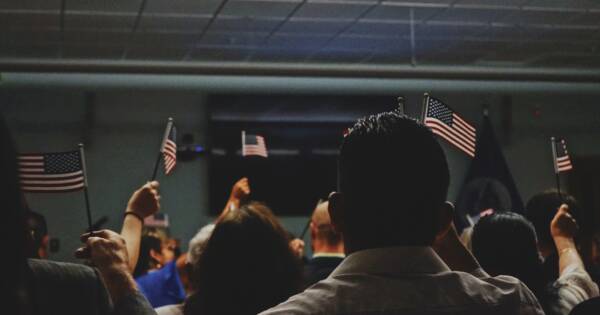Find out what to expect from a visit to traffic court, including what happens there, how you should handle it and what fines might be imposed by the court.
Just about every motorist thinks about the risk of getting a ticket while they’re driving, and many eventually do get at least one of them. Once you get a traffic ticket, you may be confused about what to do next and how the process works. While details vary from state to state, in most places, your ticket is a summons to go to traffic court.
At this court, the decisions you make go a long way to determining whether you have to pay a fine or serve some other sentence. Find out the answers to some of the most common questions people have about the traffic court process below.
What Is Traffic Court For?
When you get a ticket for a moving violation, you usually have to go to traffic court. This court processes almost all the tickets written by law enforcement in your area, usually at the county level, and it imposes sentences for people who plead guilty or who are convicted.
How Is Traffic Court Different From Other Courts?
The court you have to go to for traffic citations is different from other kinds of court. Civil court, for example, is a place where private lawsuits are held. Criminal courts are where people accused of a crime have to go for trial. Traffic court is a kind of criminal court, but it only handles car- and driving-related offenses. Unlike criminal courts, you almost never have the right to a jury trial, since most traffic offenses are infractions or misdemeanors. Most felonies are referred to the criminal court, even if they involve a vehicle.
Traffic courts do not always have a judge presiding over them. In some jurisdictions this is required, but some states allow judicial officers, who are almost always lawyers acting by designation, to sit in judgment. Regardless of whether the court’s presiding officer is a commissioned judge or not, he or she is likely to wear a black robe and be addressed as, “Your Honor.”
 Sasun Bughdaryan/Unsplash
Sasun Bughdaryan/UnsplashWhat Penalties Does Traffic Court Impose?
Traffic courts generally do not handle very serious crimes, so it’s rare for somebody to go to jail for a traffic violation. Most of the penalties the court imposes are fines or other remedies, such as traffic school. The court can also impose minor administrative fees, such as the processing fee for a fix-it ticket that has been signed off on by a law enforcement officer.
Do I Need a Lawyer?
Very few defendants in traffic court bring a lawyer with them. It does sometimes happen, though this is almost always for defendants who face more serious charges in criminal court, such as a DUI/DWI, and who need an advocate to speak for them when facing the relatively minor traffic charges.
What Happens in Court?
The details of the court procedure vary from place to place, and even from one courtroom to another in the same building. Often, however, the court calls up all of the defendants who have reported for their hearing and asks them in turn how they plead.
Almost everybody who pleads guilty is told their fine (and/or other punishments) and leaves to pay the clerk.
Those who plead not guilty are often asked to sit and wait for the others to finish their own pleas. These defendants are then often asked questions by the court, and a ruling is issued. If the case is more complicated, such as when a defendant brings exhibits, the case may be continued to another date.
How Do I Pay Traffic Court Fines?
Once a guilty plea has been accepted, or a guilty verdict entered, it’s very common for the defendant to be assessed a fine that is set by state law. Most traffic courts have an attached clerk’s office where you can pay your entire fine with cash, a cashier’s check or other verified funds. Some courts allow personal checks or credit cards, while others don’t allow revocable forms of payments.
If you can’t pay the entire fine up front, most jurisdictions let you make arrangements to pay. This is usually a payment plan that has you pay a portion of your fine every month until it’s all paid off. In addition, the court might impose a traffic school requirement. This can be satisfied by paying the school for the class and then submitting proof of attendance to the clerk of the court.
 Emil Kalibradov/Unsplash
Emil Kalibradov/UnsplashWhat Happens If I Don’t Pay My Fine?
It’s very important to pay your fine if you wind up getting one. Almost every court has several methods to encourage defendants to pay in a timely manner.
If you can’t make your payment arrangement for whatever reason, it’s crucial that you get in touch with the clerk’s office before your next payment is due. While most traffic court systems can be flexible about fine payments, especially in case of hardship, almost none of them are willing to overlook missed payments with no contact.
In the event you don’t pay the fine in full and on schedule, you can expect a number of penalty fines to be added to the total you owe. If you still haven’t paid after some time, the court might impose a lien on your assets or garnish your wages to take the money directly from you.
If you can’t make the required payment this way, for whatever reason, you might have a legal judgment appear on your credit that’s very likely to block you from taking out a loan or getting credit.
In some states, the traffic court can also block you from renewing your license until the fines have been paid, or your license might even be suspended outright.
In serious cases, the traffic court could also find you in contempt and issue a warrant that could result in jail time the next time you get stopped by the police.
While traffic court charges are generally less serious than criminal court cases, they still need to be taken seriously. If you have a citation for traffic court, it can be helpful to consult with a licensed attorney in your area before going to court. Many lawyers offer free or low-cost consultations for traffic matters, and they can answer any questions you have about what to expect when you report to traffic court in your state.






